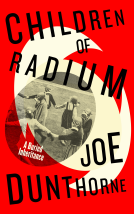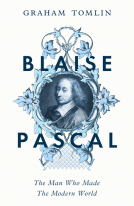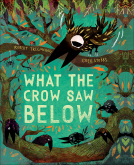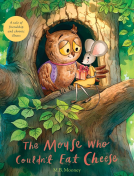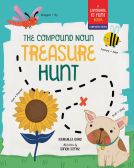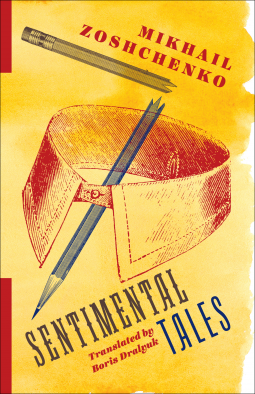
Sentimental Tales
by Mikhail Zoshchenko
This title was previously available on NetGalley and is now archived.
Send NetGalley books directly to your Kindle or Kindle app
1
To read on a Kindle or Kindle app, please add kindle@netgalley.com as an approved email address to receive files in your Amazon account. Click here for step-by-step instructions.
2
Also find your Kindle email address within your Amazon account, and enter it here.
Pub Date Jul 31 2018 | Archive Date Sep 25 2018
Talking about this book? Use #RussianLibrary #NetGalley. More hashtag tips!
Description
Yet beneath Kolenkorov’s intrusive narration and sublime blathering, the stories are genuinely moving. They tell tales of unrequited love and amorous misadventures among down-on-their-luck musicians, provincial damsels, aspiring poets, and liberal aristocrats hopelessly out of place in the new Russia, against a backdrop of overcrowded apartments, scheming, and daydreaming. Zoshchenko’s deadpan style and sly ventriloquy mask a biting critique of Soviet life—and perhaps life in general. An original perspective on Soviet society in the 1920s and simply uproariously funny, Sentimental Tales at last shows Anglophone readers why Zoshchenko is considered among the greatest humorists of the Soviet era.
Advance Praise
"Zoshchenko is the wittiest and most perceptive of Soviet satirists. Boris Dralyuk is the first translator to succeed in bringing his wit into English. Comedy is largely a matter of timing and Dralyuk, like Zoshchenko himself, has an impeccable sense of rhythm."
—Robert Chandler, translator of Vasily Grossman, Andrei Platonov, Teffi, and many others
"Mikhail Zoshchenko is one of Russia’s great humorists, not only of the Soviet era, but of all time. Boris Dralyuk’s translation of Sentimental Tales reads beautifully, and the English language work is a real tour de force. It transmits Zoshchenko’s quirky style while still maintaining a natural, easy flow, with well-judged rhythms and cadences that echo Zoshchenko’s own."
—Lesley Milne, University of Nottingham
"If life is a comedy for those who think and a tragedy for those who feel, Zoshchenko gives us comedy silhouetted in unspoken tragedy. This many-layered pleasure is brought closer to the contemporary reader by a nimble translation by Boris Dralyuk."
—Janet Fitch, author of The Revolution of Marina M. and Paint It Black
Available Editions
| EDITION | Other Format |
| ISBN | 9780231183796 |
| PRICE | $14.95 (USD) |
| PAGES | 224 |
Featured Reviews
 Nicole O, Reviewer
Nicole O, Reviewer
SENTIMENTAL TALES is a collection of six short stories by Mikhail Zoshchenko, a popular satirist in Russia in the 1920s. The copy I was lucky enough to be granted access to was translated by Boris Drayluk.
Zoshchenko was, as stated above, a satirist. He wrote in the earliest decades of the USSR and his stories are colored by what he experienced during World War I and the revolutions that transformed Russia from a tsarist state into the most powerful Communist nation in the world. They are a commentary on life in those early years, and it’s rather shocking that Zoshchenko did not end up the dead at the hands of the state because the commentaries and depictions are neither flattering nor kind.
The first story in SENTIMENTAL TALES is called “Apollo and Tamara.” Apollo Semyonovich Perepenchuko played the piano and loved a girl named Tamara. Tamara wanted to love someone famous, which Apollo was not. Yet, he said. Apollo went to war and survived. More or less. He came back for her but Tamara still didn’t want him. He tried to kill himself but someone saved him. Sort of. He died awhile later. So did Tamara. (3/5 stars)
“People” is the second story in the collection. The first parts of Zoshchenko’s stories seem to have the theme that the ‘author’ gives a third-person account of the author’s own actions, and it’s definitely a theme that works very well. It comes across as unique and interesting, making it almost a sort of self-insert story. Anyway, in “People” Ivan is so naive, which seems to be a theme with Zoshchenko. A reader can’t help but feel for him, which means he’s probably supposed to represent the lower classes
of the larger USSR. (5/5 stars)
“A Very Bad Night” is the third, and slightly unremarkable story. My notes after I read it indicate that I wasn’t even sure this is the title. But it’s about Boris, who plays the triangle in an orchestra. It’s not a lucrative career in the best of times, and far less so in the early years of the USSR. Boris’ wife is not a fan of his poverty, never has been, and Boris spends most of the story panicking about money. And his wife. (3/5 stars)
And then we have “What The Nightingale Sang” which is, in total honesty, one of the best short stories I’ve ever read and one of the best things I’ve read this year. I haven’t laughed at a story like this in a very long time! The author’s commentary on his actions in the beginning and at the end of the story fit modern times as well as when the story was written. It is the story of Vasily and Lizochka, and it is perfectly cliched and adorable in the way it looks at Love in any time and at any place. (5/5 stars)
The fifth story in the collection is called “A Merry Adventure” and is the story of Sergei, a typical bumbling fool. Sergei is constantly scrabbling for money because he is so eager to please certain people, like pretty girls who want him to take them to the pictures. He is willing to take advantage of a dying aunt to please this girl. It seems as this story is an allegory of Communism and the USSR, in which the weak are manipulated to please the strong. (4/5 stars)
And the final story in the collection, “Lilacs in Bloom,” is about Volodin, who is a beautiful man who wants nothing more than to be adored by the most beautiful ladies in town. The catch is that Volodin is married, and his brother-in-law finds out about his affairs and hatches a plan to splash acid on his nose to make him less beautiful, or to have his wife do it. She misses and Volodin takes that as permission to carry on, especially when his brother-in-law quickly admits defeat. (3/5 stars)
(I received a copy of SENTIMENTAL TALES from NetGalley and Columbia University Press in exchange for an honest and original review. All thoughts are my own.)
 Subashini N, Reviewer
Subashini N, Reviewer
Dark, bitter Russian humour, as thick & bracing as black coffee, is totally my jam. The Russians seem like the literary precursors of most things & such is the case with this collection of six tales: very postmodernist, but originally published in 1929. Through the metafictional device of an author who asserts his own opinions in every story, the actual author Zoshchenko satirises & probes the contradictions of early Bolshevik society. A delight.

